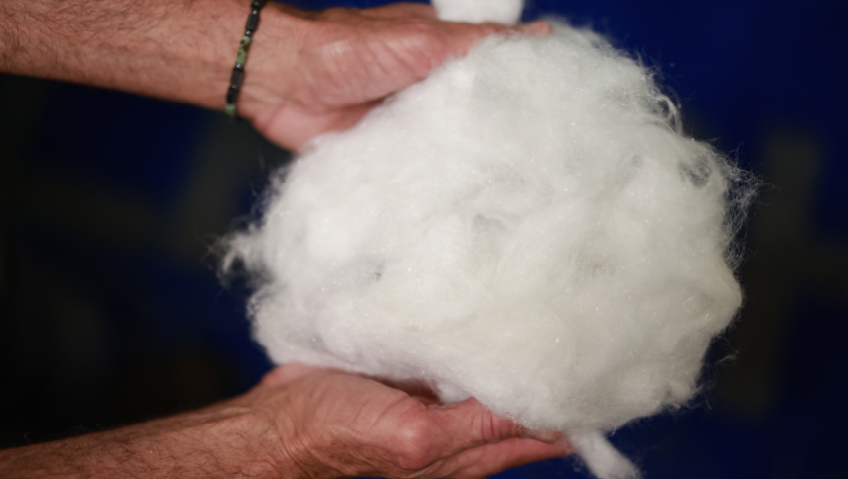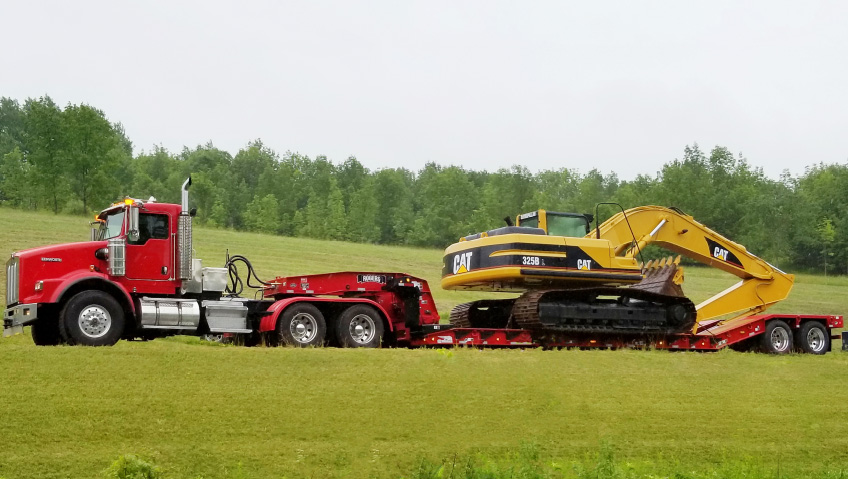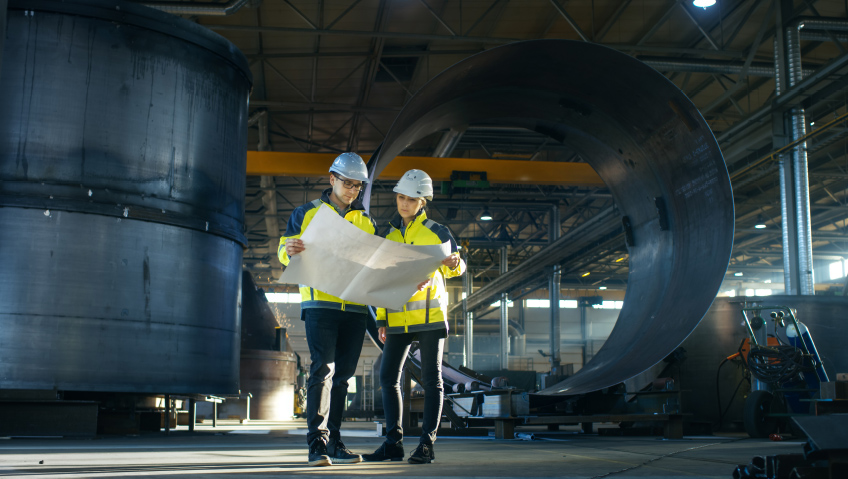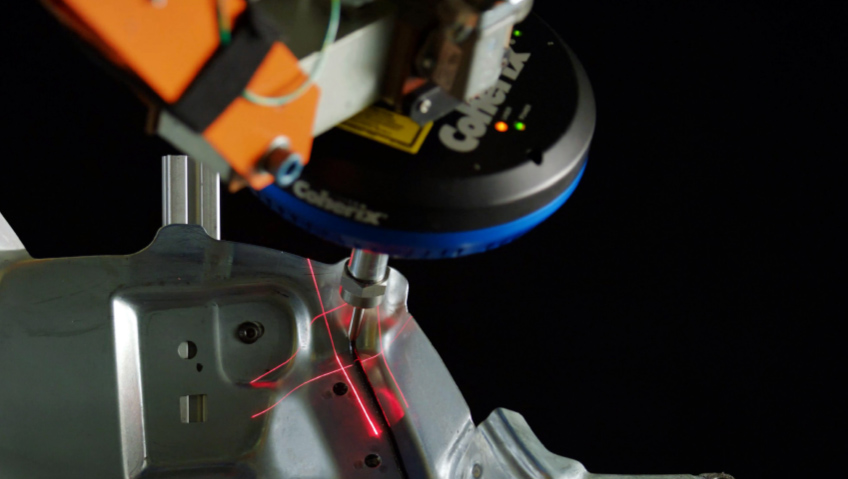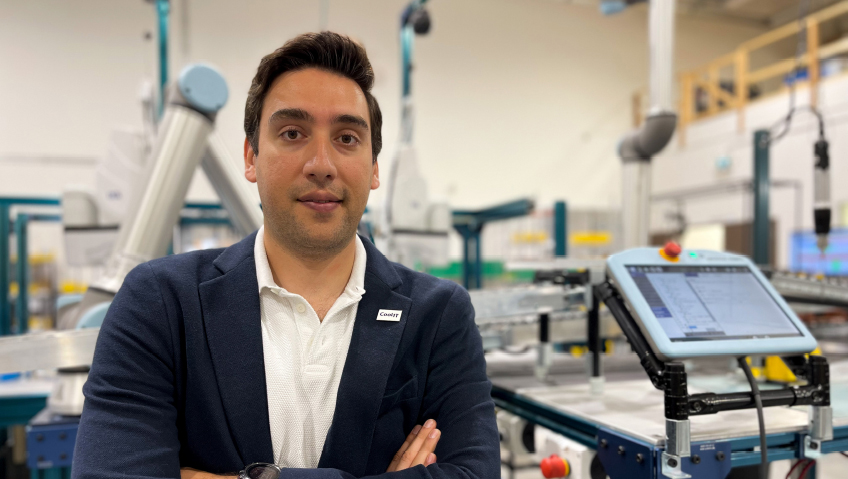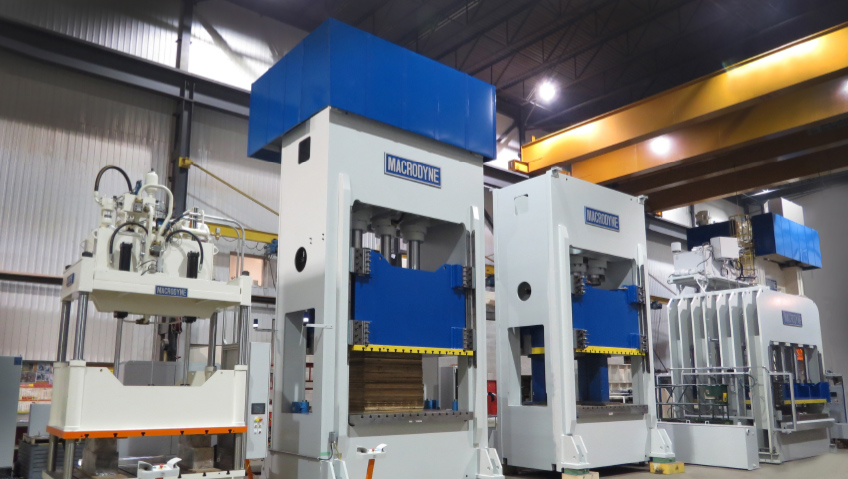At a time when environmental stewardship is becoming increasingly urgent, it is refreshing to find companies doing tremendous work in mitigating our impact on the planet. Leigh Fibers is a re-engineered fiber company with a vast reach, offering custom fiber blends to suit the needs of global manufacturing suppliers in twenty-five countries. It is celebrating one hundred years in business this year and is still owned by the family that bought the company from the founder in 1922.
This is North America’s biggest textile waste and by-product re-processor, and it specializes in landfill diversion. The materials it collects consist of an amazing variety of fibers, from wool and rayon to polyester, cotton, and much more. Their uses are just as diverse, including end products like acoustic padding, insulation, building materials like concrete and barriers, automotive liners, landscaping materials, couches, water filters, and equestrian arena surfaces.
The company’s head office and manufacturing facility are based at an over one-million-square-foot facility in Wellford, South Carolina, along interstate I-85. Wherever there is post-manufacture fiber waste that would previously be carted off to landfill sites, Leigh Fibers steps in to break the chain of disposal. Materials are collected from mattress and furniture factories and other manufacturers and taken to the company’s industrial facility, where they are separated into base fibers.
“We create products in a green, circular, [sustainable] manner out of what would essentially [have been] garbage. There are very few [companies] out there that do what we do,” says Bryan Tickle, key account executive. Even more interesting is that oftentimes, the products are then returned to the very customers from whom they were collected to be reused for their original or a range of new purposes.
Leigh Fibers added another creative aspect to its business when it recently partnered with Tidal Vision after more than a year of discussions. Based in Bellingham, Washington, the new sister company manufactures chitosan as part of its Tidal-Tex bio-based textile range. Derived from the exoskeletons of marine crustaceans, this versatile and interesting fibrous substance is a form of sugar that is “biodegradable, biocompatible, non-toxic, and up-cycled from byproducts of the seafood industry,” according to the firm’s brochure.
Chitosan’s qualities are astonishing, with the material offering anti-microbial properties that answer to some of the country’s highest industry standards, excellent flame retardance, and several other benefits. In addition, Tidal Vision is coming to market with a product manufactured at a percentage of the usual price. Moreover, it is the only commercial chitosan fabricator in America and offers complete tailor-made solutions to suit every manufacturing user simply and easily.
“They partner with us. We’re part owners of the company, and they’re operating from our facility in Wilfred, South Carolina, as their southeast distribution and production center,” says Tickle. Tidal Vision also supplies Leigh Fibers with several new markets, such as water purification and treatment providers amongst others. The Leigh Fiber partnership now allows the company to spread its presence to the world of textiles.
The properties of chitosan mean that Leigh Fibers can now add anti-microbial properties and fire retardance to its materials in a way that is not harmful to the environment at any point in the final material’s lifecycle. “A lot of the competitive products out there are derived from silver or nickel, and so, when you put that waste product into the ground, you know exactly what that does. Chitosan does not have that effect on the ground or the environment,” Tickle states.
Leigh Fibers as we know it today was started by Hans Lehner, who bought the company during the depressed economy that followed the influenza epidemic of 1918. Lehner’s son Phillip joined his father in 1945, taking over the leadership position in 1965. As the winds of change swept through the American textile trade in the early sixties, Leigh Fibers moved its plants down the coast from New England to South Carolina.
The Lehners created a set of guidelines by which they wanted the firm to operate, which, apart from minimal exceptions where modern times have made some requests obsolete, are being upheld to this very day. “We buy and trade waste, and we find outlets for that fiber,” says Tickle. “We have hundreds and hundreds of different blends. So we customize any of our fibers to fit our customers’ needs.”
Today, this common-sense approach still permeates every part of the organization, right down to its president’s expertise. “Our president, Daniel Mason, began working in the factory when he was in high school, if not before. He knows how to work every machine in the building, and that’s very unique,” says Tickle, describing what an incredible advantage it is to have a president capable of laying out all the products and processes in great detail for clients in a way that makes sense to them. “There are not a lot of industries out there that can say that,” he adds.
Touching on how the firm weathered COVID-19 and all the challenges that came with it, Tickle’s praise for all the support that the team received from the family is high. “We had a lot of support from the family and the board who stuck with us as we changed, as everyone did. We provide a service to many industries that need fiber,” he says. Tickle also notes that Leigh Fibers turned toward fabricators like furniture and pet toy and bed creators as well as casket manufacturers and others in need of more fiber when giants like the automotive industry saw a drop in business as a result of COVID-19.
Such a high level of support during difficult times is just one of the reasons why the firm has a large number of long-term employees. It has “a great group of people. I have been in sales my whole life. I have never met so many people working for the same company for over thirty and forty years. We must have ten or twelve people who have been here over forty years,” says Tickle. One of the company’s senior salespeople has worked here just four years short of half a century. “He has retired three times,” Tickle adds with a smile.
This is a company that operates with its ear to the ground. As a result, while millions of businesses across the globe found themselves in a tailspin during the initial shelter-in-place period, Leigh Fibers hired new salespeople shortly before. “They kept us on, which says a lot about that family. There was a clear line of communication of what was happening.”
Tickle also highlights that, rather than becoming nervous, as many companies did, Leigh Fibers carried on regardless of the challenges that awaited it. “We were very fortunate to work for a group of people who simply did not panic,” he says.
Its take on doing business, together with its drive to be environmentally responsible, has earned Leigh Fibers an impressive number of awards over the years. Much of its achievement centers on doing good for the people of its region. That includes making donations to local hospitals, humane societies, and several other types of charitable organizations.
As with everything it does, Leigh Fibers looks toward the future with a combination of nimbleness, enthusiasm, and the wisdom of the ages. It is still counting its blessings for having business partners, staff, and a board of directors who helped see it through the challenges of the past two years.
That said, the company is ready to hit its next phase of intentional, controlled growth in specific new regions with the same tenacity and drive that has been so essential to getting it to where it is today. “We’re procuring new machinery to get into other parts of our industry. We’re growing while other people are shrinking,” Tickle says.

